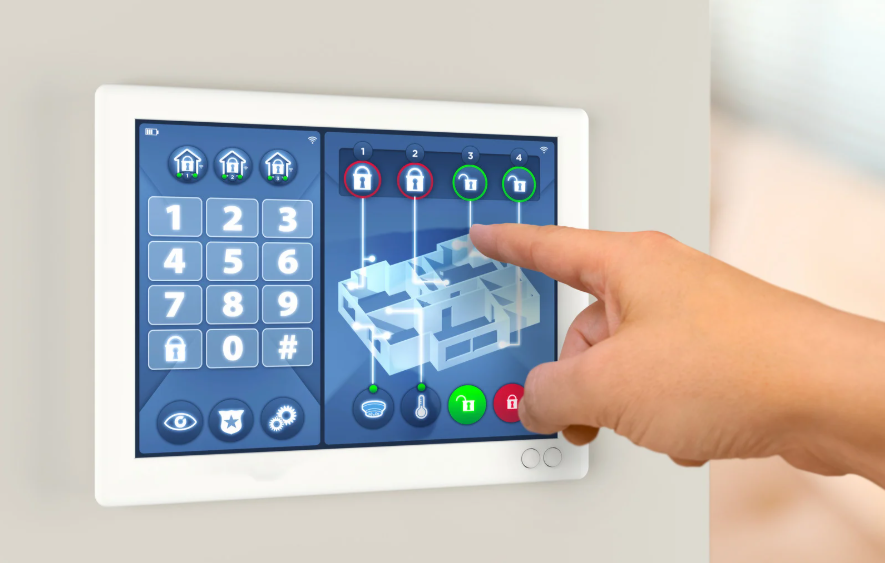In today’s world, businesses are increasingly seeking ways to enhance their sustainability efforts while driving operational efficiency. As the global demand for sustainable solutions continues to rise, companies are turning to technology to help them achieve their environmental goals. One such technology making a significant impact is Smart Building Management Systems (SBMS). These systems are transforming the way businesses manage their buildings, making them more energy-efficient, cost-effective, and environmentally friendly.
This article explores why Smart Building Management Systems are essential for sustainable businesses, especially in urban environments like Singapore, where green initiatives are rapidly gaining traction.
What Is a Smart Building Management System?
A Smart Building Management System (SBMS) is an advanced technological solution designed to integrate and automate various building operations. These systems use sensors, artificial intelligence (AI), the Internet of Things (IoT), and automation to optimize energy use, improve operational efficiencies, and enhance comfort within the building. By collecting real-time data on various building functions—such as lighting, HVAC (heating, ventilation, and air conditioning), water usage, and security—SBMS allows building managers to control and optimize these systems remotely.
In Singapore, a city-state known for its cutting-edge technology and sustainable initiatives, SBMS is quickly becoming a crucial component of businesses striving to meet green building standards. These systems not only help in reducing energy consumption but also contribute significantly to reducing operational costs, making them an essential investment for forward-thinking companies.
The Role of SBMS in Sustainable Business Operations
Energy Efficiency
One of the primary advantages of Smart Building Management Systems is their ability to drastically improve energy efficiency. These systems use real-time data and predictive analytics to manage energy use more effectively. For instance, SBMS can automatically adjust heating and cooling systems based on occupancy levels, ensuring energy is not wasted when a space is unoccupied. Additionally, lighting systems can be automated to turn off when not in use or adjust their brightness according to natural daylight, further reducing energy consumption.
For businesses in Singapore, where energy costs can be high and sustainability is a top priority, adopting SBMS can lead to substantial savings and help achieve sustainability targets. With SBMS in place, companies can optimize their energy consumption and align with the country’s green building regulations, which promote the reduction of carbon footprints.
Reduced Carbon Footprint
Reducing the carbon footprint is another critical aspect of sustainable business operations, and Smart Building Management Systems play a vital role in this effort. By optimizing energy use, reducing waste, and enhancing the efficiency of systems like heating, cooling, and lighting, SBMS helps lower the amount of energy consumed. This reduction directly translates to a decrease in greenhouse gas emissions, which is essential for businesses aiming to minimize their environmental impact.
In Singapore, where the government is pushing for a more sustainable urban environment through initiatives like the Green Mark Certification, SBMS is a key enabler for businesses striving to meet these standards. By incorporating these systems, companies not only enhance their sustainability efforts but also contribute to the nation’s overall environmental goals.
Cost Savings
Beyond environmental benefits, Smart Building Management Systems offer significant cost savings for businesses. Through automation and intelligent energy management, businesses can significantly reduce their utility bills. By cutting down on unnecessary energy consumption, SBMS helps companies lower operational costs, which is especially beneficial in industries where profit margins are thin.
For example, a business in Singapore with multiple office spaces or a large commercial building can use SBMS to automate heating, cooling, and lighting based on occupancy. This approach reduces energy waste and cuts down on electricity and cooling costs, enabling companies to save money while still providing a comfortable environment for employees and clients.
Regulatory Compliance
As governments worldwide, including in Singapore, implement stricter environmental regulations, businesses must take proactive steps to comply with green building standards and sustainability mandates. SBMS helps companies meet these requirements by providing real-time data on energy usage, emissions, and other environmental factors.
In Singapore, businesses can benefit from green certifications such as the Building and Construction Authority’s (BCA) Green Mark Certification, which evaluates the environmental sustainability of buildings. By implementing Smart Building Management Systems, companies can easily monitor and track their energy usage and environmental impact, helping them stay ahead of regulatory changes and enhance their reputation as an eco-conscious business.
Key Benefits of Smart Building Management Systems
Real-time Monitoring & Data Insights
One of the key features of Smart Building Management Systems is their ability to provide real-time monitoring and data insights. SBMS collects data from sensors installed throughout the building, allowing facility managers to track the performance of various systems, such as HVAC, lighting, and security, in real time. This data helps businesses make informed decisions about energy use, maintenance schedules, and system performance.
In Singapore, where businesses are increasingly looking for ways to improve operational efficiency, this data-driven approach is invaluable. SBMS enables business owners to monitor their building’s performance from anywhere, making it easier to identify inefficiencies and take corrective actions promptly.
Predictive Maintenance for Equipment Efficiency
Predictive maintenance is another crucial advantage of Smart Building Management Systems. By continuously monitoring the condition of equipment and systems, SBMS can predict when maintenance or repairs are needed, reducing the risk of equipment failure. This proactive approach ensures that systems like HVAC and lighting operate at peak efficiency, avoiding costly breakdowns and downtime.
In Singapore, where businesses face high competition and need to maintain operational efficiency, predictive maintenance offered by SBMS can help reduce long-term repair costs and extend the lifespan of critical equipment, leading to significant savings.
Enhanced Employee Comfort & Productivity
An often-overlooked benefit of Smart Building Management Systems is the improvement in employee comfort. SBMS allows for the precise control of temperature, lighting, and air quality within a building, ensuring that employees work in an environment that maximizes comfort and productivity. By maintaining optimal conditions throughout the day, businesses can improve employee satisfaction and reduce complaints related to uncomfortable office conditions.
For companies in Singapore, where climate conditions can be hot and humid, SBMS provides an excellent solution for creating a comfortable working environment that enhances employee performance.
Improved Security & Safety Measures
Security and safety are top priorities for any business, and Smart Building Management Systems help ensure that a building remains secure and safe at all times. These systems integrate surveillance cameras, access control, and alarm systems into a central platform, enabling building managers to monitor security in real-time. Additionally, SBMS can enhance safety by monitoring air quality and ensuring that buildings meet safety regulations.
For businesses in Singapore, where security and safety standards are strict, SBMS provides peace of mind, knowing that all aspects of building management are under control.
Case Studies: Businesses Benefiting from SBMS
Several businesses around the world, including those in Singapore, have already adopted Smart Building Management Systems and seen significant benefits. For example, large commercial buildings in Singapore’s central business district have incorporated SBMS to monitor and reduce energy consumption, resulting in lower operational costs and higher Green Mark certification ratings. These businesses not only save money but also demonstrate their commitment to sustainability, which is increasingly important to consumers and stakeholders.
Implementing a Smart Building Management System for Your Business
Implementing Smart Building Management Systems requires careful planning and investment. Businesses should start by evaluating their current building infrastructure and identifying areas where energy efficiency can be improved. They should then select an SBMS that integrates seamlessly with their existing systems and meets their specific needs.
In Singapore, companies can work with local SBMS providers who specialize in creating customized solutions for businesses of all sizes. By choosing the right system and working with experienced professionals, companies can ensure a smooth integration process and reap the long-term benefits of SBMS.
Future of Smart Building Management Systems
The future of Smart Building Management Systems is bright, with continuous advancements in AI, IoT, and building automation technologies. These innovations will further enhance the capabilities of SBMS, enabling businesses to achieve even higher levels of energy efficiency, cost savings, and sustainability.
In Singapore, the adoption of smart buildings will continue to grow as the city-state moves towards its goal of becoming a leading global hub for green and sustainable development. SBMS will play a key role in achieving this vision, helping businesses meet their sustainability targets and contribute to the creation of smart, green cities of the future.
Takeaway
Smart Building Management Systems are no longer a luxury but a necessity for businesses that want to thrive in today’s environmentally conscious world. By improving energy efficiency, reducing carbon footprints, and offering cost savings, SBMS are essential tools for sustainable business operations. In Singapore, where sustainability is a key focus for both businesses and government, the adoption of SBMS is crucial for companies looking to stay competitive and comply with green building regulations.
Investing in Smart Building Management Systems is not just about improving your business operations; it’s about being a part of the solution to the global challenge of climate change. Embrace the future of building management and sustainability today.







